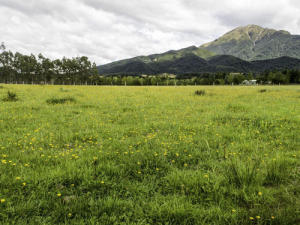NZ kiwifruit sector on alert for mysterious Italian disease
New Zealand's kiwifruit industry is on alert following reports of a mystery disease that is sweeping through Italian orchards.
 Pests are a symptom of an unsustainable farming method, says a visiting expert in ‘regenerative’ agriculture.
Pests are a symptom of an unsustainable farming method, says a visiting expert in ‘regenerative’ agriculture.
Farmers should stop treating agricultural pests as a problem, and instead realise they are a symptom of an unsustainable farming method, says a visiting expert in ‘regenerative’ agriculture.
Dr Jonathan Lundgren, founder of Ecdysis Foundation and Blue Dasher Farm, visited New Zealand for an international workshop on conservation biological control of invertebrate pests, hosted by the Bio-Protection Research Centre at Lincoln University.
He told workshop participants that healthy ecosystems do not have the pest problems that are present in ‘monoculture’ agriculture.
“If you have a pest problem in your field, that’s your field telling you that something is out of whack. If all you are doing is reacting to a pest problem, then you are never going to get ahead; you’ve got to solve the underlying problem, not just the symptoms.”
The underlying problem is lack of biodiversity, Lundgren said. “The way we approach our food production is much too simplified.”
Instead, he said, regenerative agriculture solves pest problems and is more profitable.
Regenerative agriculture goes beyond sustainable agriculture by trying to regenerate degraded land and ecosystems rather than simply sustaining what is left. Farmers who follow regenerative methods use few if any pesticides, don’t till the land, practise crop and stock rotation that mimic natural processes, and encourage biodiversity.
Lundgren said one study found more diverse and more populous insect communities in cow dung from regenerative farms, including more predators of pest species (mostly flies).
Global trade has been thrown into another bout of uncertainty following the overnight ruling by US Supreme Court, striking down President Donald Trump's decision to impose additional tariffs on trading partners.
Controls on the movement of fruit and vegetables in the Auckland suburb of Mt Roskill have been lifted.
Fonterra farmer shareholders and unit holders are in line for another payment in April.
Farmers are being encouraged to take a closer look at the refrigerants running inside their on-farm systems, as international and domestic pressure continues to build on high global warming potential (GWP) 400-series refrigerants.
As expected, Fonterra has lifted its 2025-26 forecast farmgate milk price mid-point to $9.50/kgMS.
Bovonic says a return on investment study has found its automated mastitis detection technology, QuadSense, is delivering financial, labour, and animal-health benefits on New Zealand dairy farms worth an estimated $29,547 per season.
OPINION: Staying with politics, with less than nine months to go before the general elections, there’s confusion in the Labour…
OPINION: Winston Peters' tirade against the free trade deal stitched with India may not be all political posturing by the…